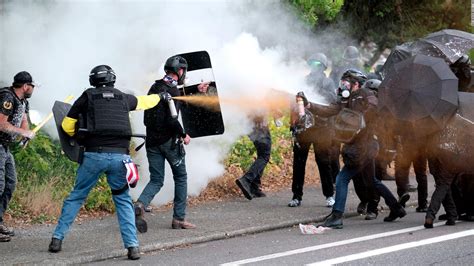
During a state visit to Vietnam, French President Emmanuel Macron was briefly pushed in the face by his wife, Brigitte Macron, in what appeared to be a lighthearted moment amidst a larger crowd. The incident, captured on video and widely circulated online, occurred as the Macrons greeted well-wishers in Hanoi, sparking humorous reactions and commentary on social media.
French President Emmanuel Macron’s state visit to Vietnam took an unexpected turn when a brief, playful interaction between him and his wife, Brigitte Macron, was caught on camera. The incident, which occurred during a meet-and-greet with crowds in Hanoi, showed Brigitte gently pushing her husband in the face. The moment, though fleeting, has quickly gone viral, generating a range of reactions from amused observers to those offering light-hearted speculation about the couple’s dynamic.
The incident unfolded as President Macron and his wife were engaging with locals, shaking hands and exchanging pleasantries. Video footage shows Brigitte Macron initially adjusting her husband’s face, possibly to ensure he was properly positioned for photographs or simply to wipe something away. However, the touch evolved into a more deliberate, albeit gentle, push on his cheek, prompting President Macron to briefly recoil with a smile.
While the reason for the push remains unclear, most viewers have interpreted it as a harmless gesture. Some have suggested that Brigitte Macron was playfully redirecting her husband’s attention or perhaps reminding him of protocol during the public appearance. Others have humorously speculated about the couple’s private interactions, turning the moment into a lighthearted meme.
Neither the French President’s office nor Brigitte Macron’s staff have released an official statement regarding the incident. This silence has further fueled online speculation and amusement, with many users sharing their own interpretations of the brief interaction. The lack of official comment has allowed the moment to be viewed and interpreted through various lenses, largely focusing on the perceived dynamics between the President and his wife.
The state visit to Vietnam was intended to strengthen diplomatic and economic ties between France and the Southeast Asian nation. President Macron engaged in meetings with Vietnamese leaders, discussing trade, investment, and cooperation on various international issues, including climate change and regional security. The visit also highlighted the historical connections between the two countries, with France having been the colonial power in Vietnam for several decades. This historical context adds another layer to the visit, emphasizing the ongoing efforts to forge a modern and equitable relationship.
The playful incident between the Macrons, while drawing significant attention online, is unlikely to overshadow the broader objectives of the state visit. The focus remains on the discussions and agreements reached between the two countries, which aim to deepen their partnership and address mutual interests. However, the viral nature of the video underscores the power of social media to amplify even the smallest of moments in the public lives of political figures.
The reaction to the video has been largely positive, with many users finding the interaction endearing and humanizing. In an era where political leaders are often perceived as distant or out of touch, such candid moments can offer a glimpse into their personal lives, fostering a sense of connection with the public. However, the incident also highlights the challenges faced by public figures, who are constantly under scrutiny and whose every action can be dissected and amplified by the media.
The context of the visit is crucial to understanding the significance of this seemingly minor event. France and Vietnam have a complex and intertwined history, marked by both colonial rule and subsequent cooperation. Macron’s visit aimed to build on the positive aspects of this relationship, focusing on economic partnership and shared goals. The visit included discussions on sustainable development, renewable energy, and cultural exchange, all areas where both countries see potential for collaboration. The French President also emphasized the importance of upholding international law and promoting regional stability, particularly in the context of ongoing tensions in the South China Sea.
The “squabble,” as some have termed it, can also be viewed in the broader context of how political figures are portrayed in the media. The relentless coverage of their personal lives often blurs the line between public duty and private affairs. In this instance, the brief interaction between the Macrons has become a subject of widespread interest, diverting attention from the more substantive aspects of the state visit. This highlights the media’s role in shaping public perception and the challenges of maintaining a balance between informing the public and sensationalizing minor events.
Despite the lighthearted nature of the incident, it also serves as a reminder of the pressures faced by political leaders and their families. Every public appearance is carefully scrutinized, and even the smallest gestures can be interpreted and amplified. The Macrons, like many other political couples, have learned to navigate this environment, presenting a united front while also maintaining their individual identities. Their ability to handle such situations with grace and humor is a testament to their experience and resilience.
In conclusion, while the viral video of Brigitte Macron pushing Emmanuel Macron in the face has generated amusement and commentary, it is important to remember the broader context of the state visit to Vietnam. The visit was aimed at strengthening diplomatic and economic ties between France and Vietnam, and the discussions and agreements reached are of far greater significance than a brief, playful interaction. However, the incident also underscores the power of social media to amplify even the smallest of moments in the public lives of political figures, highlighting the challenges they face in navigating the constant scrutiny of the media and the public. The event also serves as a reminder that, despite their positions of power, political leaders are also human beings with personal relationships and interactions that can be both endearing and relatable.
The focus remains on the substantive discussions held during the visit, addressing issues such as trade, investment, climate change, and regional security. These discussions are critical for fostering a stronger and more cooperative relationship between France and Vietnam, and they are ultimately more important than a fleeting moment captured on video. However, the viral nature of the incident serves as a reminder of the ever-present spotlight on public figures and the challenges they face in balancing their public and private lives. The ability of the Macrons to handle such situations with humor and grace is a testament to their experience and resilience in the face of constant scrutiny.
Detailed Analysis and Background:
The relationship between France and Vietnam is complex, marked by a history of colonialism and subsequent efforts to build a modern partnership. France colonized Vietnam in the late 19th century, establishing French Indochina, which also included Laos and Cambodia. This period was characterized by economic exploitation, political repression, and cultural imposition. Vietnamese resistance to French rule grew over time, culminating in the First Indochina War, which ended with the French defeat at Dien Bien Phu in 1954 and the subsequent partition of Vietnam.
Despite this history, France and Vietnam have gradually rebuilt their relationship since the end of the Vietnam War in 1975. France has become a significant trading partner and investor in Vietnam, and the two countries cooperate on a range of issues, including education, culture, and sustainable development. The French language continues to be taught in Vietnamese schools, and there is a significant Vietnamese diaspora in France.
Macron’s visit to Vietnam was aimed at further strengthening these ties, focusing on economic cooperation and shared interests. The discussions between the two countries covered a wide range of topics, including trade, investment, climate change, and regional security. France has expressed its support for Vietnam’s economic development and its commitment to promoting a rules-based international order in the region.
The incident involving the Macrons occurred against this backdrop of historical complexity and ongoing cooperation. While the moment itself was lighthearted, it also serves as a reminder of the challenges faced by political leaders in navigating the constant scrutiny of the media and the public. The ability of the Macrons to handle such situations with grace and humor is a testament to their experience and resilience.
The state visit underscores the importance of maintaining strong diplomatic relations in an increasingly interconnected world. France’s engagement with Vietnam reflects its broader strategy of fostering partnerships with countries in Southeast Asia, a region of growing economic and strategic importance. By strengthening ties with Vietnam, France aims to promote its own interests while also contributing to regional stability and prosperity.
The focus remains on the substantive discussions held during the visit, addressing issues such as trade, investment, climate change, and regional security. These discussions are critical for fostering a stronger and more cooperative relationship between France and Vietnam, and they are ultimately more important than a fleeting moment captured on video. However, the viral nature of the incident serves as a reminder of the ever-present spotlight on public figures and the challenges they face in balancing their public and private lives. The ability of the Macrons to handle such situations with humor and grace is a testament to their experience and resilience in the face of constant scrutiny.
The incident also raises questions about the role of the media in shaping public perception of political figures. The relentless coverage of their personal lives often overshadows their policy initiatives and diplomatic efforts. In this instance, the brief interaction between the Macrons has become a subject of widespread interest, diverting attention from the more substantive aspects of the state visit. This highlights the need for a more balanced and nuanced approach to covering political leaders, one that focuses on their actions and policies while also respecting their privacy.
The Macrons, like many other political couples, have learned to navigate this environment, presenting a united front while also maintaining their individual identities. Their ability to handle such situations with grace and humor is a testament to their experience and resilience. The incident serves as a reminder that, despite their positions of power, political leaders are also human beings with personal relationships and interactions that can be both endearing and relatable.
The state visit to Vietnam represents an important step in strengthening the relationship between France and Vietnam, building on a complex history and focusing on shared interests and goals. The discussions held during the visit are critical for fostering a more cooperative and prosperous future for both countries. While the viral video of the Macrons has generated amusement and commentary, it is important to remember the broader context of the visit and the significance of the issues discussed.
Expanded Context and Broader Implications:
The seemingly minor incident between President Macron and his wife reflects a broader trend in how political figures are perceived and portrayed in the modern media landscape. The rise of social media and the 24-hour news cycle have created an environment where every action, no matter how small, can be scrutinized and amplified. This has significant implications for how political leaders conduct themselves in public and how they manage their personal lives.
One consequence of this increased scrutiny is that political figures are under pressure to present a carefully curated image to the public. They must be mindful of how their words and actions will be interpreted and how they will be portrayed in the media. This can lead to a sense of detachment and artificiality, as leaders strive to project an image of competence and control.
However, there is also a counter-trend towards greater authenticity and transparency. Voters are increasingly demanding that their leaders be genuine and relatable, and they are often drawn to politicians who are willing to show their human side. This can create a tension between the need to project an image of authority and the desire to connect with voters on a personal level.
The incident involving the Macrons can be seen as an example of this tension. On the one hand, the brief interaction was a seemingly spontaneous and unscripted moment, offering a glimpse into the couple’s personal dynamic. On the other hand, it was also a carefully observed and widely disseminated event, subject to interpretation and commentary.
The reaction to the video suggests that many viewers found the interaction to be endearing and humanizing. In an era where political leaders are often perceived as distant or out of touch, such candid moments can offer a sense of connection and relatability. However, the incident also highlights the risks of allowing personal moments to become fodder for public consumption.
The challenge for political leaders is to strike a balance between projecting an image of authority and connecting with voters on a personal level. They must be mindful of the power of social media to amplify their actions, but they must also remain true to themselves and avoid becoming overly scripted or artificial. The Macrons, like many other political couples, have learned to navigate this environment, presenting a united front while also maintaining their individual identities.
The state visit to Vietnam represents an important step in strengthening the relationship between France and Vietnam, building on a complex history and focusing on shared interests and goals. The discussions held during the visit are critical for fostering a more cooperative and prosperous future for both countries. While the viral video of the Macrons has generated amusement and commentary, it is important to remember the broader context of the visit and the significance of the issues discussed.
The incident also raises broader questions about the role of gender in politics. Brigitte Macron, as the wife of the French President, occupies a unique position in the public eye. She is expected to support her husband and represent France with grace and dignity, but she is also subject to scrutiny and criticism based on her appearance and behavior.
The fact that the incident involved a woman pushing a man in the face also adds another layer of complexity. In many cultures, such an action might be seen as disrespectful or even aggressive. However, the reaction to the video suggests that most viewers interpreted the gesture as playful and harmless.
This highlights the evolving norms and expectations surrounding gender roles in politics. While women are increasingly taking on leadership positions, they are still often judged by different standards than men. The incident involving the Macrons serves as a reminder of the challenges that women face in navigating the complex and often contradictory expectations of public life.
Conclusion:
The incident during President Macron’s visit to Vietnam, while seemingly minor, encapsulates several key aspects of modern political life. It highlights the constant scrutiny faced by public figures, the power of social media to amplify even the smallest moments, and the challenges of balancing personal and public identities. While the viral video has generated amusement and commentary, it is important to remember the broader context of the state visit and the significance of the discussions held between France and Vietnam. These discussions are critical for fostering a stronger and more cooperative relationship between the two countries, and they are ultimately more important than a fleeting moment captured on video. The ability of the Macrons to handle such situations with humor and grace is a testament to their experience and resilience in the face of constant scrutiny. The incident also serves as a reminder that, despite their positions of power, political leaders are also human beings with personal relationships and interactions that can be both endearing and relatable. The visit itself, focused on strengthening diplomatic and economic ties, remains the primary story, showcasing the ongoing efforts to build a positive and mutually beneficial relationship between France and Vietnam.
Frequently Asked Questions (FAQ):
1. What exactly happened between Emmanuel Macron and Brigitte Macron during the Vietnam visit?
During a meet-and-greet with crowds in Hanoi, Brigitte Macron was filmed gently pushing her husband, Emmanuel Macron, in the face. The moment was captured on video and quickly went viral.
2. What was the purpose of Emmanuel Macron’s state visit to Vietnam?
The state visit aimed to strengthen diplomatic and economic ties between France and Vietnam. Discussions focused on trade, investment, climate change, and regional security. The visit also highlighted the historical connections between the two countries.
3. Has there been any official statement from the French President’s office regarding the incident?
No, neither the French President’s office nor Brigitte Macron’s staff has released an official statement regarding the incident. This lack of official comment has contributed to online speculation and amusement.
4. How has the public reacted to the video of the Macrons?
The reaction has been largely positive, with many finding the interaction endearing and humanizing. Some have interpreted it as a playful gesture, while others have humorously speculated about the couple’s dynamic.
5. What is the historical context of the relationship between France and Vietnam?
France colonized Vietnam in the late 19th century, establishing French Indochina. This period was characterized by economic exploitation and political repression. Despite this history, France and Vietnam have gradually rebuilt their relationship since the end of the Vietnam War in 1975, focusing on economic cooperation and shared interests.









